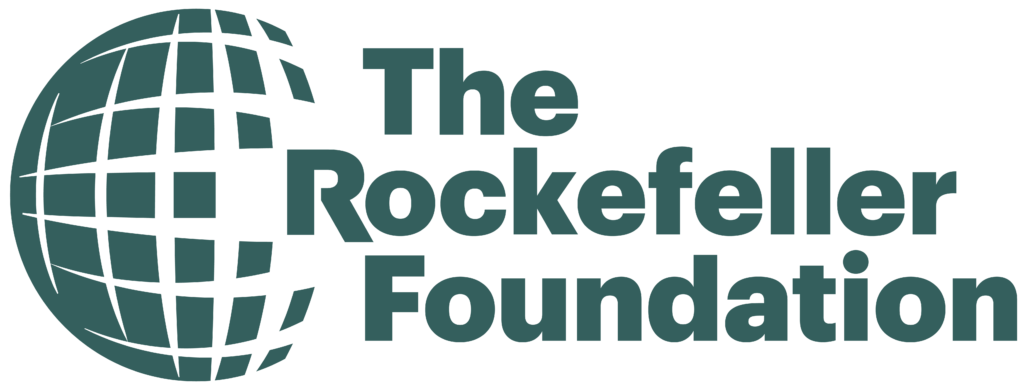Philanthropy has long been a driving force for positive change in society. We’re seeing a paradigm shift where philanthropic efforts are evolving from traditional charity to strategic investments in long-term societal change. From funding innovative solutions to global challenges to fostering collaboration between diverse stakeholders, philanthropy is reshaping how we approach sustainable development. We’ll examine key strategies that maximize impact, highlight success stories that demonstrate philanthropy’s potential, and discuss how organizations can effectively leverage philanthropic partnerships to create lasting, positive change. In an era where the lines between business, government, and civil society are blurring, understanding the strategic role of philanthropy is essential for anyone committed to building a more equitable and sustainable world.
The Role of Philanthropy in Sustainable Development

Bridging Funding Gaps
One of the primary roles of philanthropy in sustainable development is bridging funding gaps that government and private sector investments may not cover. Philanthropic organizations can take risks on innovative projects that have the potential to create significant social and environmental impact but may not yet have proven financial viability. This ability to fund high-risk, high-reward initiatives is crucial for advancing sustainable development goals (SDGs).
Catalyzing Social Change
Philanthropy is uniquely positioned to catalyze social change by supporting grassroots movements, advocacy efforts, and community-led initiatives. By funding organizations and projects that address systemic issues such as poverty, inequality, and environmental degradation, philanthropists can drive transformative change. These efforts often lead to policy shifts and increased awareness, furthering the impact of sustainable development initiatives.
Empowering Communities
Philanthropy empowers communities by providing resources and support to local leaders and organizations. This empowerment enables communities to develop and implement solutions tailored to their specific needs and challenges. Community-driven development is more sustainable and effective, as it leverages local knowledge and fosters ownership and accountability among community members.
Strategies for Effective Philanthropy
Aligning with Sustainable Development Goals
To maximize impact, philanthropic efforts should align with the United Nations Sustainable Development Goals (SDGs). These 17 goals provide a comprehensive framework for addressing global challenges such as poverty, hunger, health, education, and climate change. By targeting specific SDGs, philanthropists can ensure their contributions are part of a broader, coordinated effort to achieve sustainable development.
Building Strategic Partnerships
Collaboration is key to amplifying the impact of philanthropic initiatives. By forming strategic partnerships with governments, businesses, non-profits, and other philanthropic organizations, donors can leverage additional resources, expertise, and networks. These partnerships can enhance the scale and effectiveness of projects, ensuring more significant and lasting impact.
Measuring Impact
Effective philanthropy requires robust impact measurement to ensure resources are used efficiently and goals are met. Philanthropic organizations should implement comprehensive monitoring and evaluation frameworks to track progress, assess outcomes, and identify areas for improvement. Transparent reporting and sharing of results also build trust and accountability among stakeholders.
Benefits of Philanthropy in Sustainable Development

Driving Innovation
Philanthropy drives innovation by funding research and development of new technologies, practices, and models that can address complex social and environmental issues. For example, philanthropic funding has supported the development of renewable energy technologies, sustainable agriculture practices, and healthcare innovations that have significantly advanced sustainable development efforts.
Enhancing Social Equity
Philanthropic efforts often focus on marginalized and underserved populations, promoting social equity and inclusion. By addressing barriers to education, healthcare, and economic opportunities, philanthropy helps level the playing field and ensures that all individuals have the chance to contribute to and benefit from sustainable development.
Strengthening Resilience
Philanthropy plays a critical role in strengthening the resilience of communities to withstand and recover from crises such as natural disasters, economic shocks, and health emergencies. By funding disaster preparedness, response, and recovery efforts, philanthropic organizations help communities build the capacity to cope with and adapt to adverse events.
Case Studies of Successful Philanthropic Initiatives
The Bill and Melinda Gates Foundation
The Bill and Melinda Gates Foundation is one of the most prominent examples of philanthropy driving sustainable development. The foundation has invested billions of dollars in global health, education, and poverty alleviation initiatives. Its support for vaccine development and distribution has been instrumental in combating infectious diseases like malaria and polio, significantly improving public health outcomes in developing countries.

The Rockefeller Foundation
The Rockefeller Foundation has a long history of supporting sustainable development through its focus on health, food, power, and jobs. One notable initiative is its 100 Resilient Cities program, which helps cities worldwide build resilience to physical, social, and economic challenges. By providing funding, technical assistance, and a global network of experts, the foundation has enabled cities to develop and implement comprehensive resilience strategies.

Philanthropy is a powerful tool for advancing sustainable development, driving innovation, enhancing social equity, and strengthening community resilience. By aligning with sustainable development goals, building strategic partnerships, and measuring impact, philanthropic efforts can achieve significant and lasting results. For organizations like Bottom Billion Corporation, leveraging the power of philanthropy is essential to fulfilling their mission of empowering underserved communities and fostering global growth. As the world continues to face complex challenges, the role of philanthropy in driving sustainable development will only become more critical. By embracing this transformative power, we can create a more equitable, sustainable, and prosperous future for all



